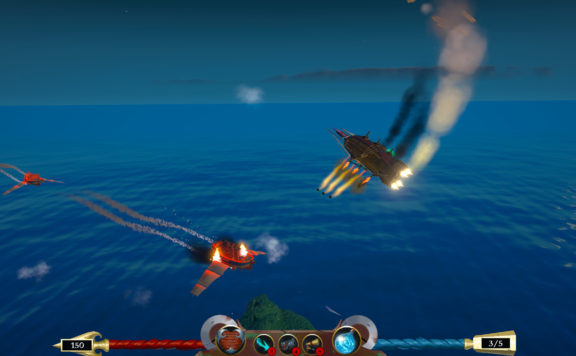Since the days of Shogun: Total War over a decade ago, I’ve dreamt of the time periods and settings future Total War titles would explore. We’ve been to Rome twice, as well as Medieval Europe. We returned to Sengoku Japan a few years back, explored the New World and conquered as Napoleon. But one setting I’ve romanticized seeing in a Total War game has seen incarnations from strategy games to hack-and-slash action games: The Three Kingdoms period in ancient China.
Enter Total War: Three Kingdoms. Set during the turmoil of the late Han Dynasty period, the Total War: Three Kingdoms sets you as a major warlord in Ancient China seeking to be named Emperor and rule over the land. You can play as major leaders such as the strategist Cao Cao, Liu Bei, Sun Jian, or lesser known rulers like Kong Rong, Liu Baio and more. However, each faction has one goal in mind: total domination of the Middle Kingdom.
Three Kingdoms has two distinct playmodes: Romance and Records. The latter is the more realistic, traditional Total War gameplay. Each general has its own retinue to guard them in battle, and more importantly, each one is simply a mere mortal – capable of easily dying if a strategy falls through.

Romance is the more interesting playmode and adds a ton of flavor to the gameplay. Generals are the dynamic heroes of ancient legends who seem incapable of falling in the battlefield. Generals will challenge each other to duels mid-battle, and the rest of your army will not interfere, allowing the two titans to duke it out for supremacy on the battlefield. There is something awesome about watching Cao Cao and Lu Bu duke it out on the battlefield – it transported me to my middle-school days, navigating Cao Cao through the piles and piles of enemies in Dynasty Warriors to do the same thing. Romance is the play mode where the flavor of the source material shines through, and though I did try out the Records playmode and enjoyed it as I would any other Total War game, Romance mode is really what kept my interest.
Total War: Three Kingdoms expertly depicts the chaos and struggle of this period in history, both through the battlefield as well as through the political arena. In fact, this might be the first Total War game where I’ve felt diplomacy was key to surviving and navigating your way to total victory. Deals matter and each diplomatic action reverberates throughout the factions in the game more so than any other Total War game before it in my opinion. Breaking a deal has consequences, such as gaining an “Untrustworthy” tag which may make some rulers think twice before accepting a trade deal or joining your coalition. Having even a minor deal with a faction could negatively affect your standing with another, especially if those two are enemies.
Each faction also has a unique resource to use when planning their conquest of China. Yuan Shu focuses on legitimacy, forcing other leaders to recognize their right to the Throne. However, my favorite had to be Cao Cao, which isn’t surprising either since Cao Cao is the leader I spent much of old Dynasty Warriors games as well as the old Romance of the Three Kingdom titles (Especially RotTK II on NES, I played a ton of that in middle school). Cao Cao uses his Credibility resource to use, manipulating factions into improving or destroying their relationships with one another. However, starting a proxy war is an insane way to bring a rival down a few notches.

In fact, instigating a proxy war was one of the main ways I won my first campaign. As for myself, Liu Bei, Yuan Shao, and Sun Jian were trying to establish ourselves as the most powerful faction in China, Liu Bei and Yuan Shao started to outpace my own growth. Over the next few turns, I slowly deteriorated their relationship using the credibility resource and eventually convinced Liu Bei to declare war on Yuan Shao – my ally at the time. As a result, Yuan Shao lost some territory to Liu Bei, but it also allowed me to easily declare war on my rival, swooping in and eventually making a vassal of Bei’s faction. These types of interactions feel incredibly organic and satisfying – something I’ve long felt was missing from many Total War titles.
In fact, because each faction leader and general is treated as its own unique character, it adds another dimension to the fold that makes Three Kingdoms feel like you’re playing Crusader Kings II sometimes. Each character has desires, attributes, and can form relationships with other generals and nobles in your faction. And army with generals who dislike each other could lead to problems within the unit, and nobles who are dissatisfied with their standing in court could eventually lead to a civil war if not handled delicately. You’re no longer being forced to keep an eye on just your rivals, but even the rivalries within your own faction, which makes each turn more and more interesting.
Each general also has a class which helps differentiate their roles on the battlefield. Commanders are great at dueling enemy heroes, while your strategists thrive in the background with your archers and artillery. Knowing these classes and the unit types that best benefit the generals is as much a key to victory as not replicating the Battle of Winterfell.

Multiplayer is also back, allowing friends to either team up to conquer China or go at it against each other for the emperorship. Total War is always fun with more people, but it’s not without its flaws. Performance does seem to suffer a bit when playing multiplayer, and the inability to take turns simultaneously as could be done in Total War: Warhammer is a bit annoying. The pace of the long turns where you’re just sitting and waiting gets to be too much as the late game unfolds. It would be nice as well if there were a way to team up with your friend from the launch screen, as opposed to waiting till you’ve discovered each other and “diplomatically” create an alliance.
In the end, Total War: Three Kingdoms succeeds in nearly everything it tries to do. Its Romance mode makes me wonder how I’m going to go back to traditional Total War games, and its character simulation reminds me of playing Crusader Kings II, albeit on a smaller scale. And at its core, it’s an incredibly solid Total War experience. Diplomacy finally matters in a way that doesn’t feel shoehorned, and while the Multiplayer suffers from pacing thanks to the turn sequences, it’s still a lot of fun to take out rivals with a friend at your side.







